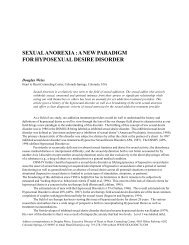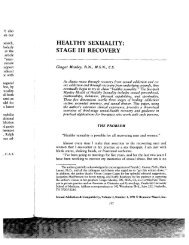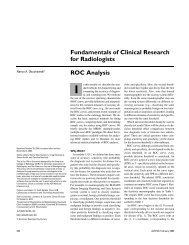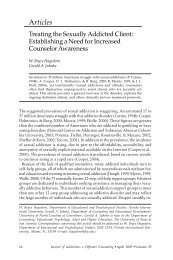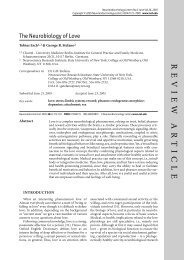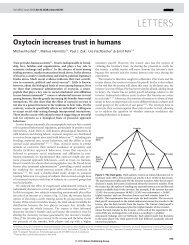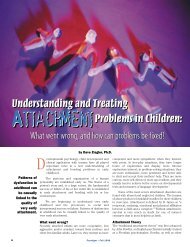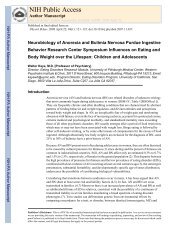An Overview of Psychiatric Ethics
An Overview of Psychiatric Ethics
An Overview of Psychiatric Ethics
Create successful ePaper yourself
Turn your PDF publications into a flip-book with our unique Google optimized e-Paper software.
10. When obtaining informed consent for the research project the physician should be particularlycautious if the subject is in a dependent relationship to him or her or may consent under duress.In that case the informed consent should be obtained by a physician who is not engaged in theinvestigation and who is completely independent <strong>of</strong> this <strong>of</strong>ficial relationship.11. In case <strong>of</strong> legal incompetence, informed consent should be obtained from the legal guardian inaccordance with national legislation. Where physical or mental incapacity makes it impossible toobtain informed consent, or when the subject is a minor, permission from the responsible relativereplaces that <strong>of</strong> the subject in accordance with national legislation. Whenever the minor child isin fact able to give a consent, the minor’s consent must be obtained in addition to the consent <strong>of</strong>the minor’s legal guardian.6412. The research protocol should always contain a statement <strong>of</strong> the ethical considerations involvedand should indicate that the principles enunciated in the present declaration are complied with.II. Medical research combined with pr<strong>of</strong>essional care (clinical research)1. In the treatment <strong>of</strong> the sick person, the physician must be free to use a new diagnostic andtherapeutic measure, if in his or her judgment it <strong>of</strong>fers hope <strong>of</strong> saving life, re-establishing healthor alleviating suffering.2. The potential benefits, hazards and discomfort <strong>of</strong> a new method should be weighed against theadvantages <strong>of</strong> the best current diagnostic and therapeutic methods.3. In any medical study, every patient – including those <strong>of</strong> a control group, if any – should beassured <strong>of</strong> the best proven diagnostic and therapeutic method.4. The refusal <strong>of</strong> the patient to participate in a study must never interfere with the physician-patientrelationship.5. If the physician considers it essential not to obtain informed consent, the specific reasons forthis proposal should be stated in the experimental protocol for transmission to the independent(1, 2)committee.6. The physician can combine medical research with pr<strong>of</strong>essional care, the objective being theacquisition <strong>of</strong> new medical knowledge, only to the extent that medical research is justified by itspotential diagnostic or therapeutic value for the patient.III. Non-therapeutic biomedical research involving human subjects (non-clinical biomedicalresearch)1. In the purely scientific application <strong>of</strong> medical research carried out on a human being, it is the duty<strong>of</strong> the physician to remain the protector <strong>of</strong> the life and health <strong>of</strong> that person on whom biomedicalresearch is being carried out.2. The subjects should be volunteers – either healthy persons or patients for whom theexperimental design is not related to the patient’s illness.3. The investigator or the investigating team should discontinue the research if in his/her or theirjudgment it may, if continued, be harmful to the individual.4. In research on man, the interest <strong>of</strong> science and society should never take precedence overconsiderations related to the well-being <strong>of</strong> the subject.Appendix 4 – The Code <strong>of</strong> <strong>Ethics</strong> for the RANZCP1. Psychiatrists shall respect the essential humanity and dignity <strong>of</strong> every patient.2. Psychiatrists shall not misuse the inherent power differential in their relationships with patients,either sexually or in any other way.3. Psychiatrists shall provide the best possible psychiatric care for their patients.4. Psychiatrists shall strive to maintain patient confidentiality.



